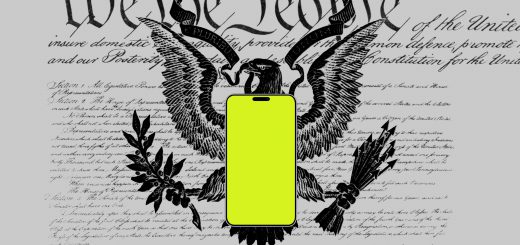Sense & Sensitivity
Still and Still Moving — the title borrows from TS Eliot — has been nominated for the Mahindra Excellence in Theatre Awards.
Last December, the love story of an odd couple drew houseful crowds when it was presented in Delhi. Still and Still Moving, a rare exploration of male homosexuality on stage, bore the signature of its writer and director Neel Chaudhuri, who infuses plays with a deep literary quality. In Still and Still Moving, he played with metaphors, experimented with space, time and storyline and gave dialogues a poetic touch. Rather than a vocal comment on the LGBT issue, the play turned into a lyrical tale of two people who come together and fall apart. As the scenes unfolded like a montage, the most abiding images came from the two lead protagonists, Partho and Adil (Oroon Das and Anirudh Nair respectively), who recreated the tender yet strained relationship between an older man and his much younger lover.
Still and Still Moving — the title borrows from TS Eliot — has been nominated for the Mahindra Excellence in Theatre Awards, an annual competition held in Delhi, with Nair, who lights up every scene as the effervescent Adil, also in contention for Best Actor. It is Das, however, who seems to have landed a role in which he doesn’t have to act; so close is he to Partho that it is difficult to tell the performer apart from his character. Veteran theatre director and actor Kusum Haidar says, “Oroon barely made eye contact with the audience, he was in character in an understated way that made the audience look at him instead, and enter his world.”
At home in south Delhi, Das, 41, is surrounded by books and art. A designer by profession — he ran away from NID — Das had turned up in shorts at the Penguin office looking for work. They asked him to design jackets for Vikram Seth’s books, thus starting him on his career. The bookcase in his room is crammed with titles, from the Bauhaus art movement to beer to Harry Potter. Just like the writer Partho in Still and Still Moving, one might say. Near his bed, there is an altar with images of Ramakrishna Paramhansa and other spiritual figures — a pointer to another play of his, Rumi:Unveil the Sun.
Considered one of the finest actors in theatre, Das has been in plays by directors such as Roysten Abel, Avijit Dutt, Gauri Neelkantan and Tripurari Sharma in which he has essayed a range of complex and dark characters. “People think I am sensitive so they give me only serious roles,” he says. The gravitas of Partho can be traced back to Das’s earlier works — as the rebel soldier Ali during the Indian Mutiny who elopes with a British woman called Stella in Traitors, as the tormented Tom who has broken away from his rich family and wants to strike out on his own in the Neelkantan-directed Glass Menagerie, and as the classical pianist who returns home to his dysfunctional family in Tel Aviv with stories that may not be true in In the Dark, directed by K Madavane. At present, Das is playing a deranged and paranoid character called Koneivik who is obsessed about the Apocalypse in Comedy About the End of the World, directed by Dutt.
“I am not a trained actor. I am led by the inspiration of the character and the text. This, I have to admit, I sometimes feel is a shortcoming. Sometimes, when my co-actors are very well trained, I watch them closely to see what I can pick up from them,” he says. A part of the Shakespeare Society at St Stephen’s College, Das learnt by watching stalwarts of the era such as Joy Michael and Haidar. In 2007 arrived the role that would mark a leap for the actor. Sohaila Kapur’s ambitious project Rumi: Unveil the Sun had him in the lead role, and it pushed him to the edge. “As an amateur actor, one’s approach is to try to find some way in which you can identify with the character. With Rumi, what would I find common between my life and this man who lived 800 years ago, who wrote what people consider one of the greatest works of philosophy in the history of human civilisation, who was such a celebrated cleric and professor that he was a tourist attraction? People would travel to Konya (in Turkey) because he ran a university? I was shit scared taking this on,” he says.
Das gave up smoking, began to read works of Rumi, meditate and pray. “My prayers were very simple. I would read Rumi and start to get these feelings and I would say, ‘Oh Baba, please help me out with this, just enter me somehow,’” he says. It worked — Rumi was a long-running play and among Kapur’s best. Das says the trance stayed with him for years afterward.
In comparison, Partho offered different challenges. “Neel told me that he had written the character of Partho with me in mind and I was flattered. I took the script with me on a holiday with my family in the hills to cogitate on it and I started to wonder — Why is Partho so much in love with this Adil? Why? I don’t see it. Do you just have to assume that they are in love? Where did this love come from? I didn’t get it,” he says. This shower of questions is Das’s typical way of entering a script. Haidar, who directed him in her adaptation of Oscar Wilde’s Salome when Das was in his gawky twenties in 1993, says, “He has to satisfy himself first so there are a lot of questions.”
Das’s first thumb rule is to “establish an emotional connect with the script or situation”. He could empathise with Partho. “My first relationship was with somebody 16 years senior. My current partner is younger. I was the younger lover once and, right now, the situation has reversed,” he says. Das brings his sensitivity to Partho as he cares deeply for Adil.
Partho’s world of literature and his elegant apartment in Gurgaon are in sharp contrast to Adil’s North Campus life that is rife with protests and ragging. The push and pull of their relationship is set against the expansion of the Delhi Metro that brings far-flung areas of the city together and crams incompatible demographics, from migrants to students, into closed spaces. “In the breakup scene, the reason Adil gives for not being with Partho seem very valid. A lot of people sympathise with Adil because Partho seems like this well-heeled person whose life will go on in his habitual way, while Adil is the younger fellow who wants to be acknowledged and is not getting what he wants. Partho is a bit of an armchair romantic,” says Das and, after a drag of his cigarette, adds, “I am very Bangali in the way I cry easily, I am very tender and all that. Partho, like me, has journeyed a bit.”
Source:: Indian Express







